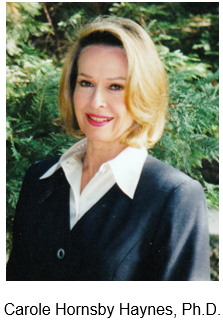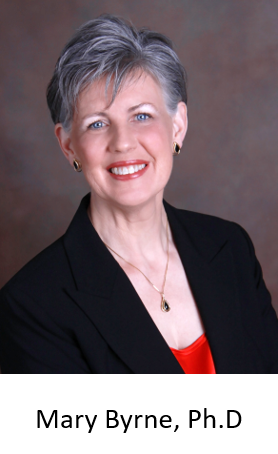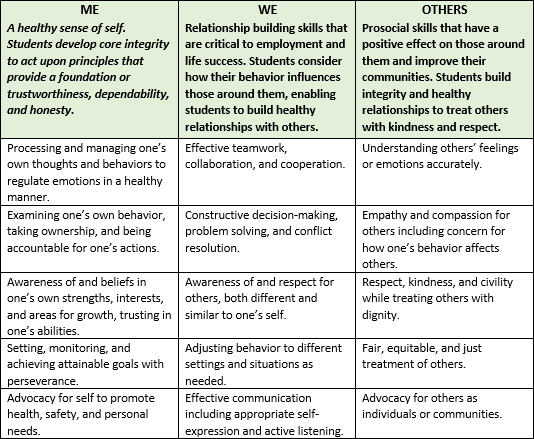‘Social-Emotional’ Learning (SEL) Standards Coming to a State Near You
Parents who are lucky enough to live in one of the more than 20 states that have not officially standardized SEL requirements should be aware that they are likely to be coming soon. For example, the state of Missouri’s board of education is on the cusp of adopting new social-emotional learning standards, with the public comment period having closed on September 15, 2023.
The Missouri Independent newspaper wrote on August 30 that state education officials are “cautiously” moving ahead with plans to implement “social-emotional learning standards for all Missouri students,” but that they are worried about what the newspaper called “political blowback.”
This is because many Missouri parents, conservative activists, and politicians know that SEL is about twisting kids’ minds to embrace CRT, LGBTQ, and other leftist agenda items, and that it’s also a scheme to collect comprehensive data on every student, over and above what’s already being gathered and stored.
What SEL is NOT about, as proponents claim, is helping students “gain confidence, emotional intelligence, and social skills....” However, the assertion that “those benefits spread from the schools into families and communities,” is probably correct. Brainwash the children and they are likely to bring the doctrine home to their families, friends, and neighbors so that before long everyone is embracing the tenets of Marxism.
The Independent quoted Missouri State Board of Education Chair Charlie Shields as admitting that “People are just going to attack and say, ‘Well, this (SEL) has no part in education.’” But instead of accepting that most parents and concerned citizens don’t want leftist indoctrination and mind control in their public schools, Shields doubled down saying: “As we move this forward, I think it’s imperative to frame it as: This is what has to happen for learning to take place.”
To some observers, his remark could be construed as a threat: If we can’t teach your kids what to think, feel, and believe according to our globalist agenda, we’re not going to teach them anything. Anyone who is aware of the National Assessment of Educational Progress (NAEP) scores realizes that public schools aren’t currently teaching much in terms of academics anyway.
SEL origins 100+ years old
 National education policy analyst, advisor, commentator, writer, and historian Dr. Carole Hornsby Haynes wrote in Education Reporter in 2021 that “the concept of conditioning and/or training children to adopt specific behaviors has been around since the early 20th century.”
National education policy analyst, advisor, commentator, writer, and historian Dr. Carole Hornsby Haynes wrote in Education Reporter in 2021 that “the concept of conditioning and/or training children to adopt specific behaviors has been around since the early 20th century.”
The term social-emotional learning itself was invented in 1994 at a meeting hosted by The Fetzer Institute, whose founder, John Earl Fetzer, was a disciple of Alice Bailey, the occultist and organizer of the Lucis Trust. Although Fetzer died in 1991, his organization lives on, describing itself as “a Community of Freedom,” with its purpose and activities couched in the vague language of new-age spirituality.
Dr. Haynes wrote that SEL “first gained a foothold in federal law with Clinton's Goals 2000” and was “designed to change student attitudes, values, and beliefs.” In order to get federal funding, states had to adopt the statute’s National Education Goals. She noted: “The ESEA's reauthorization as Goals 2000 mandated state curriculum standards and standardized tests, circumventing local control. This led to more federalized control with No Child Left Behind, Race to the Top/Common Core, and the Every Student Succeeds Act (ESSA). SEL was key in all of these.”
SEL’s international connection
Dr. Mary Byrne, longtime educator, co-founder of the Missouri Coalition Against Common Core, who currently serves on Missouri’s academic standards work group for secondary history, tells Education Reporter that SEL standards are being implemented on a global scale. Byrne states:
- The United Nations Educational, Scientific, and Cultural Organization (UNESCO) is a primary force behind the SEL movement worldwide. A major way UNESCO advocates for SEL is through its Mahatma Gandhi Institute of Education for Peace and Sustainable Development. SEL Is key to achieving the UN’s Sustainable Development Goals. In UNESCO’s view, the endgame of SEL is not to meet the social and emotional needs of each child, but to shape all children to meet the needs of a global society by adhering to the sustainable development goals.
She adds that the UN and other non-governmental organizations (NGOs) “are putting tremendous pressure on states in this country to adopt SEL standards. They use indirect pathways to push their agenda through their partnerships with education-focused NGOs, such as the Council of Chief State School Officers (CCSSO).”
One ardent supporter and purveyor of SEL is the Collaborative for Academic, Social, and Emotional Learning, better known as CASEL. Byrne notes that CASEL “also heavily lobbied Congress to appropriate grant money for the promotion of SEL in K-12 classrooms” through the previously mentioned ESSA and COVID relief funding. Since 2021, federal COVID relief funds have been pouring into the schools through the Department of Elementary and Secondary Education (DESE).
The August 2023 Update on Social-Emotional Learning Standards from the Missouri Department of Elementary and Secondary Education under the topic of “CORE Skills” reads: “MO students with strong CORE skills are better equipped to become successful students and productive contributors to a global society.” [Emphasis added.] There is no mention of students learning to become contributing citizens of the United States of America or to the state in which they live.
Dr. Byrne observes: “The most fundamental problem with SEL is that no one knows what it is.” She points out that according to the international NGOs that are shaping education policy in the U.S., “SEL is a replacement for theistic-based religious instruction,” and says “it doesn’t end there.” Her research shows that at least one document acknowledges SEL’s mental health aspect. “SEL is bundled with mental health services as part of a comprehensive mental health service delivery model. This is very dangerous, because now, without any cohesive agreement about what SEL is, standards of what is considered ‘normal’ conform to third party value systems, not the students’ families, and are assessed to measure student ‘success’ in conforming to these standards.”
Creating parent awareness
 The national pro-parent group Moms for Liberty is also tackling the issue of SEL. Moms co-founder Tiffany Justice describes the standards as “horrible,” charging that SEL “tries to get kids to ignore their instincts and turn against their parents and the values they’ve been taught at home. It turns them against what they know instinctively is right and good.
The national pro-parent group Moms for Liberty is also tackling the issue of SEL. Moms co-founder Tiffany Justice describes the standards as “horrible,” charging that SEL “tries to get kids to ignore their instincts and turn against their parents and the values they’ve been taught at home. It turns them against what they know instinctively is right and good.
“It destabilizes the child,” she continues. “It opens kids up to indoctrination.” For these reasons, SEL is on the group’s radar, and its leadership is working to raise awareness among its extensive network.
A number of other education-focused conservative voices have warned about SEL in recent years. The September 2018 issue of Education Reporter noted: “One way social and emotional learning is cropping up in schools has to do with normalizing the abnormal. Some schools are not only subjecting students to drag queens ... but students and parents whose moral compasses tell them something is amiss are subjected to harassment and re-education under the guise of SEL.”
A company called Ripple Effects, which describes itself as “a woman-owned social enterprise,” markets SEL programs for pre-K through grade 12. The company’s website defines SEL as follows:
- S is for social - strengthening the connective tissue between self and others, both interpersonal relationships and the wider social contexts that impact how people experience themselves and others.
- E is for emotion - recognizing feelings, naming them in ways that make personal and cultural sense, understanding their changing nature and how they impact perception — managing their intensity and expressing them in ways that empower the feeler while also respecting others.
- L is for learning - specifically learning the non-academic things that enable people to develop a strong sense of themselves, get along, and get ahead in an increasingly diverse and fast changing world. [Emphasis added.]
This explanation confirms that SEL has nothing to do with teaching academics and everything to do with molding the attitudes and feelings of impressionable children according to the doctrine of globalist progressives. A closer look at Ripples Effects’ founders calls into question their fitness to influence education at all, let alone manipulate the psyches of children. For example, founder Alice Ray is a media producer and co-founder Sarah Berg is a technologist. Their company references CASEL on its website, an indication that SEL promoters work in lockstep to advance their agenda.
The need for data collection
In order to make sure SEL standards are effective, tracking and amassing data are key elements. The development of technology has come a long way since Phyllis Schlafly warned repeatedly of the dangers of collecting data on schoolchildren before her passing in 2016. Phyllis wrote in 2010: “The building of databases that track students from pre-school through entry into the workforce began with the emphasis in the 1990s on testing and standards, and was expanded under ‘No Child Left Behind’ mandates. This data collection has been proceeding at what observers call a ‘breakneck pace’ under the Obama Administration because of the offer of federal grants awarded through the Race to the Top competition, the American Recovery and Reinvestment Act, and $250 million in Stimulus funds.”
The success of student re-education under SEL depends on data mining and tracking. Even the NAEP assessments now measure social-emotional characteristics, a violation of federal law and the Fourth Amendment right to privacy.
About the Missouri standards
The proposed K-12 Social-Emotional Learning Standards from the Missouri Department of Elementary and Secondary Education appear below, prefaced by the assertion that “Students will demonstrate...”:

To even the casual observer, these standards are vague and subjective. For example, whose principles will determine how the “ME” standard is put into practice? Who decides if a student is managing his or her “thoughts” in a healthy manner and what are the criteria? Whose definition of what is “healthy” will be the determining factor in whether a student is achieving the recommended standard?
In the “WE” portion, who determines what is “appropriate” self-expression? For example, how will schools handle the child who wants to pray before a meal or a sporting event?
As for the “OTHERS” standard, who will decide which “prosocial skills” have a positive effect? Common Core curriculum standards have cemented federal control in the ESSA, which changed the primary purpose of education from academics to social engineering under the banner of SEL.
Most parents and educators expect students to treat each other with respect and be able to cooperate with each other on assignments and projects as needed. But many parents believe this is as far as the schools should go if they are to focus on academic learning, which by now most agree they do not.
A possible solution
According to Dr. Mary Byrne, both our elected state officials and education bureaucrats “are under tremendous pressure from their Washington, DC-based trade organizations to create education policy that conforms to the NGO SEL agenda despite the will of the people of their state.”
She adds that it is government officials working for the NGOs and furthering those agendas rather than respecting the will of the people “who are responsible for the growing distrust the American people have of government at all levels.” She believes the solution is “to clean house” of government officials who ignore their constituents, as well as to “stop taking federal money, and re-establish local control of education at the school board level.”
The one ray of hope is the growth and influence of parents’ rights groups like Moms for Liberty, and the legislative advances being made in many state legislatures throughout the land. By virtue of his comments to the Missouri Independent, education chair Shields is acknowledging that parents oppose these globalist intrusions into local public education, and that they are watching.
Want to be notified of new Education Reporter content?
Your information will NOT be sold or shared and will ONLY be used to notify you of new content.
Click Here
Return to Home Page
